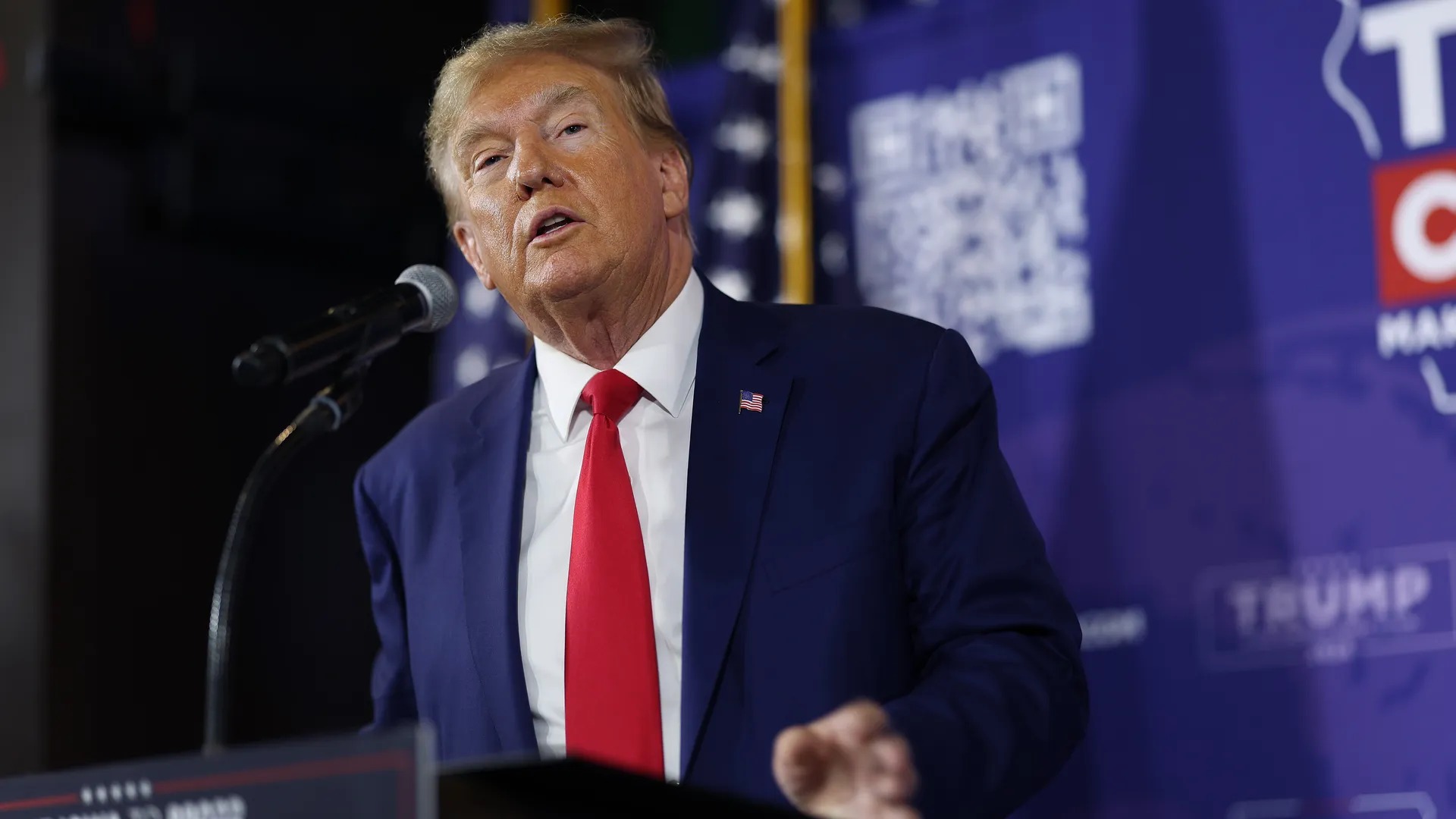Donald Trump‘s ascension to the presidency in 2016 defied all odds. A real estate mogul and reality TV star, his campaign was initially seen as a long shot.
However, his brash persona and outsider status resonated with many disillusioned voters, who saw him as a candidate who could shake up the political establishment.
Trump’s famous catchphrase, “You’re fired,” from his reality show, “The Apprentice,” became synonymous with his campaign, portraying him as a decisive leader who could get things done. This image, combined with favorable timing and luck, helped him secure victory over the favored candidate, Hillary Clinton.
Despite his electoral success, Trump’s presidency was marked by controversy and division. His victory was narrow, losing the popular vote by a significant margin.
Throughout his presidency, he faced numerous scandals and allegations of misconduct, including accusations of collusion with Russia during the 2016 election.
Trump (Credits: CNN)
In subsequent elections, Trump’s influence waned. The 2018 midterms saw significant losses for the Republican Party, and in the 2020 presidential election, he lost both the popular and electoral vote to Joe Biden. The 2022 midterms further highlighted his diminishing influence, with many of his preferred candidates suffering defeat.
Trump’s hold on the Republican Party remains strong, despite his electoral setbacks. However, his confrontational style and controversial policies have alienated many voters, particularly younger Americans. As demographics shift and a new generation of voters comes of age, Trump’s brand of politics may face further challenges.
Trump’s legacy is a subject of debate. While he remains a significant figure in American politics, his influence may be on the decline.
As the country looks to the future, it remains to be seen how Trump’s presidency will be remembered and its impact on the political landscape moving forward.
